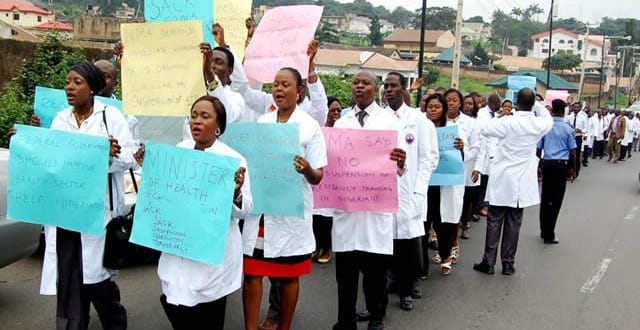Medical services in Nigeria’s Federal Capital Territory (FCT) have been thrown into disarray as resident doctors began a three-day warning strike on Tuesday, May 6, 2025. The industrial action was triggered by the abrupt termination of 127 healthcare workers by the FCT Civil Service Commission on Friday, sparking outrage across the medical community.
Leading the protest, Dr. George Ebong, President of the Association of Resident Doctors, decried the mass sackings as both “inhumane and illegal.” He accused the Commission of failing to follow appropriate procedures and described the decision as a blatant violation of labor rights.
According to Dr. Ebong, the affected workers received no prior notice and were dismissed without explanation or recourse, a move he says undermines the stability of the healthcare sector in the capital. “These dismissals were carried out without transparency or justification. It is unacceptable, and we demand accountability,” he said.
The doctors have outlined three key demands: the immediate reinstatement of all dismissed staff, payment of outstanding April salaries, and the resignation of the Commission’s chairman, Emeka Ezeh. They argue that failure to meet these conditions demonstrates a disregard for both healthcare professionals and the wellbeing of the population they serve.
Healthcare facilities in Abuja have already begun to feel the strain, with reduced staffing levels affecting patient care and operations. Emergency units, outpatient departments, and specialized clinics are operating with limited capacity, heightening concerns about the delivery of essential services.
The doctors warn that if their demands are not addressed within the strike’s three-day timeline, they will escalate to an indefinite industrial action. Such a move could paralyze healthcare operations in the FCT, placing further pressure on an already fragile system.
Negotiations between the doctors and the FCT administration have yet to yield any breakthroughs, as tensions continue to rise. Stakeholders fear that prolonged disruption may have far-reaching consequences for public health in the region.



